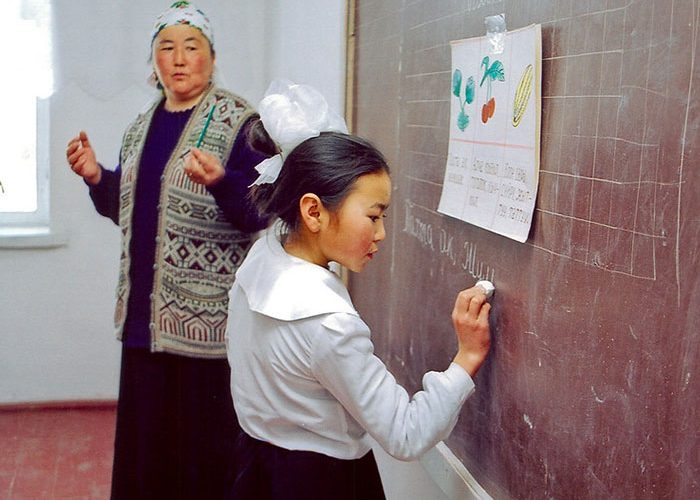GPSA projects
Voice of Village Health Committees and Social Accountability of Local Self-Government on Health Determinants of Local Communities
Country: Kyrgyz Republic
Sector: Health
Executing Agency: Development Policy Institute (DPI)
Grant Amount: $598,833
Closing Date: January 2018


Frame and Challenge
Under the oversight of the Ministry of Health and national agencies, Local Self-governments (LSGs) in the Kyrgyz Republic are tasked with delivering health services in the country’s 40 rayons (districts). Officials have established 1,670 Village Health Committees (VHCs) – and consolidated them into an Association of Village Health Committees (AVHC) – to empower rural communities to advocate for their needs and interests among LSGs across rayons.
Though VHCs have some impact in promoting good health practices and behaviors, they have not been effective in influencing broader public services linked to a healthy lifestyle, such as: water, sanitation, housing, and recreation services, which are often labeled determinants of health. Cooperation between VHCs and LSGs has been weak. In addition, VHCs do not fully understand how LSGs operate, and often lack capacity to collaborate with them to assess community needs, advocate for community interests, influence health budgets, and develop and implement health-related action plans. This project supported Village Health Committees (VHC) in rural areas of Kyrgyz Republic to engage with local government officials, to monitor and improve budget allocations for resources that affect the health of the rural population.
Solution
The Development Policy Institute (DPI), a Kyrgyz NGO with a track record in community-driven development, received a grant from the GPSA to ensure that community needs are accounted for in local budgeting processes. A key aim of the grant was to enable VHCs to sustainably influence and monitor budgets for services related to broader health determinants. It implemented three components, geared towards: 1) building the capacity of VHCs and AVCH to identify health priorities, engage with LSGs, and effectively participate in local budget processes; 2) collecting information from communities on health priorities to inform planning and budget allocation; and 3) providing technical assistance to LSGs in the use of social accountability tools to monitor budgets and improve service delivery.
Outcomes
The Project has achieved the following important milestones and results:
- The project’s most significant achievement was to affect the behavior, attitudes and skills of the VHCs and Local Self-Governments officials, in terms of improving their knowledge of LSG accountability and capacity for joint identification and solving of problems. A total of 472 representatives of local self-government bodies (about 34%) and the local community participated in the training activities. 65% were women. Participation in joint training helped both sides to understand their roles, build trust in each other, identify problems through constructive dialogue, and make joint decisions.
- 87% of 99 identified problems in the delivery of services related to health determinants, identified through the project’s ‘priority rural assessments’ in 25 pilot villages, were addressed jointly by local self-government bodies and local communities through joint action planning. LSGs in the pilot villages allocated 24,874,097 Kyrgyz soms or about USD 360,500 from the local budgets and attracted another 16,700,827 Kyrgyz soms (or USD 242,000) beyond local budget resources, to address the identified problems.
- A local policy “My aimak – healthy aimak” was developed with the participation of the community itself. Many of the municipalities had never developed such local strategic documents, although they are required by the legislation. The document then became a part of the Social and Economic Development Plan – LSG’s main strategic document.
- Over 10,000 citizens helped identify priority issues in their villages, having received access to local budget information and helped shape new health policies. The AVHC also developed a mechanism to bring those priority problems which lie beyond the capability of local communities to the attention of LSGs, the State Health Insurance Fund and the Ministry of Health.
- Citizens have better understanding of the responsibilities of LSGs and are better able to judge the quality of how they operate. More citizens now report that LSG bodies are open and transparent (10% increase in the number of respondents that consider LSG bodies are open and transparent).
- Requirements were included in the wording of the new Budget Code to make public budget hearings a mandatory part of the budget process.
Lessons
This Kyrgyz Project continues to provide lessons which stem from its design, implementation, and outcomes:
- The original design of this grant benefited from lessons learned from DPI’s previous work on the importance of working within existing structures rather than creating new ones and ensuring that project activities translate into tangible action plans and policies.
- Open budget hearings are an effective tool for self-governance, however, the concept of the open hearing may not be enshrined in local practice. Open hearings should be established procedurally and defined to include both local governments and citizens.
- Installment of open hearings and other social accountability tools may be tackled at both the local and national level, as national actors are responsible for policy in the local spheres of most GPSA operations.
- A growing concern to note and monitor is the problem of rural youth leisure. Sports development and improvements upon youth culture and activity should be considered in future health sector projects.
Learn more
To learn more about the Project, check out the following links:
